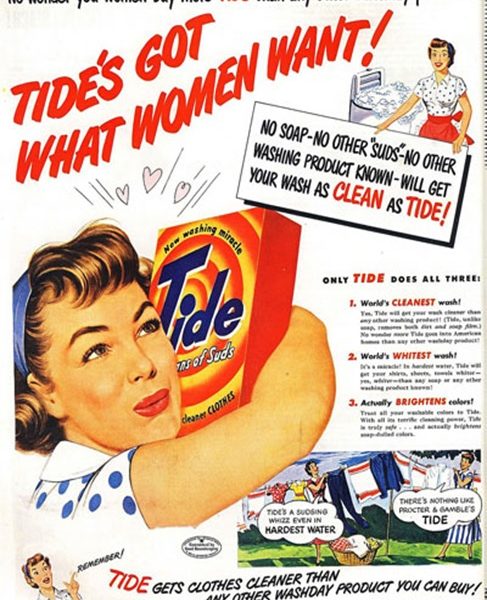Tide of washday memories hanging out on the line
Nowadays, washing machines cater for everything from a single silk scarf to a load of muddy football strip.
But years ago washday was laborious and occupied most of Mondays. The early machines comprised a heated tub and electric mangle which developed into a second tub containing a spin dryer – the ‘Twin Tub’.
As late as the mid 1960s even basic machines were expensive and I can remember a town where an entrepreneur purchased a twin tub machine and took it around on a trolley behind his bicycle. The housewife rented it for an agreed time, after which he would collect it and tow it to the next customer!
The introduction of washing powders which included blue whiteners was another welcome innovation. Remember DAZ, OMO, Tide, Persil, Fairy, Acdo, and Rinso?
Just a few from the range promising to ease washday labour. One television advertising campaign featured the ‘White Tide man’ who aimed to visit every street in Britain with ‘white’ in its name. White Leaze off Southmead Road saw him surrounded by a group of happy smiling housewives displaying their whiter than white sheets, all thanks of course to the soap powder in question.
In the nineteenth century those who didn’t have a large house with their own laundress sent out their washing, usually to someone living in an overcrowded damp and ill ventilated house.
When cholera, typhoid and consumption, (Tuberculosis) were the main killers, the practice of taking in washing from more than one household at a time did much to spread disease.
William Budd, Bristol Royal Infirmary’s famous physician and epidemiologist, recognised that as well poor sanitation this practice was a cause of diseases he was endeavouring to prevent.
The situation was resolved by the establishment of municipal laundries on the edges of the city where washing could be dried outdoors. Plaques recognising William Budd’s life-saving achievements can be seen both at the top of Park Street and at Lansdown Place in Clifton.
By 1913 Bristol Directories listed at least 67 laundries. Among them were: Paxman’s at 1a Chandos Rd, Mrs Williams’ at 1 Golden Hill, The Golden Hill Laundry at 21 Golden Hill, The National Sunlight at 47 Henleaze Road, (later Paxman’s).
There were seven along Southmead Road, from just past the Fire Station to Filton: The Bristol Sanitary laundry, Fosters, The Clifton Steam Laundry, The Royal Southmead laundry, The Laundry, The Excelsior, and Samuel Shields Laundry.
I am sure many readers will remember other neighbourhood laundries. I recall Willways, who were at number 2 The Mall Clifton, and Bolloms, Cleaners & dyers, at 19 Regent Street, Clifton, (but nowadays in 2023, the site of Clifton Hardware).
Bolloms had shops at Grove buildings, Blackboy Hill, 109 Whiteladies Road, as well as 94a Whiteladies Road, and 93 Henleaze Road, 233 Southmead Road. Their premises were taken over by Johnson’s Apparelmaster.
The laundries took on contract and workwear cleaning when it was discovered that the tradition of machinists taking their overalls home to be washed did not remove all traces of harmful lubricants. These could sometimes contaminate other household laundry and cause harmful health problems. This prompted employers to arrange for work clothing to be professionally cleaned so as to removing the potential health risk.


